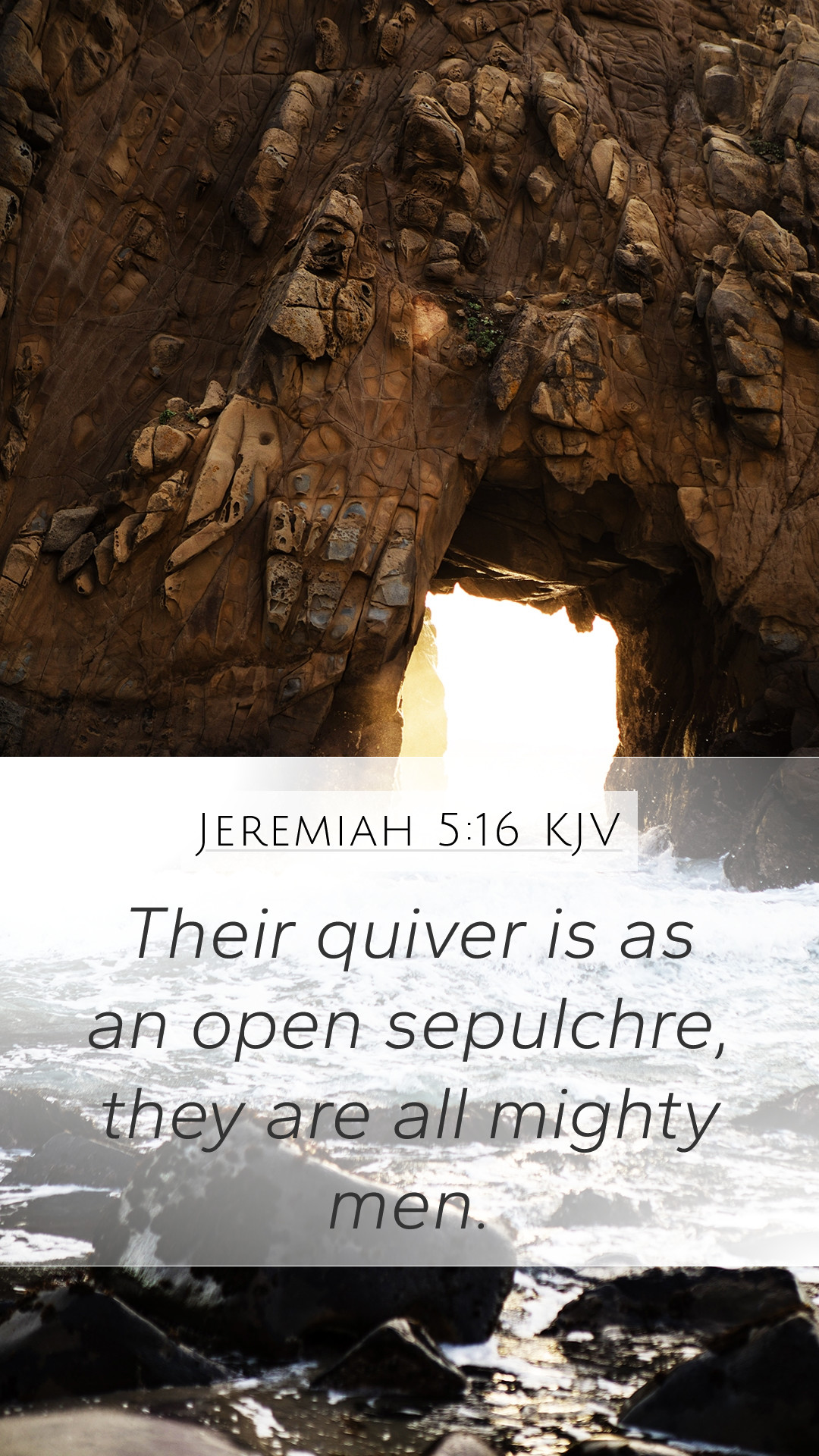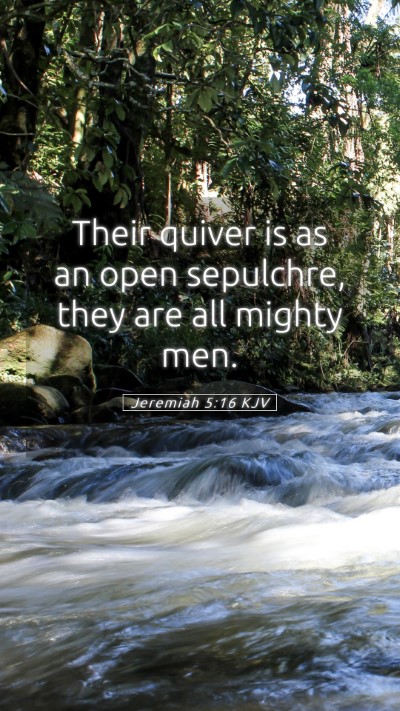Understanding Jeremiah 5:16
Jeremiah 5:16 states, "Their quiver is like an open tomb; they are all mighty men." This verse conveys profound insights into the nature of the people of Judah and their moral and spiritual condition. The imagery used in this verse represents a significant moment in the prophetic message of Jeremiah. To understand its meaning, we should consider various aspects of its interpretation through the insights of prominent public domain commentators such as Matthew Henry, Albert Barnes, and Adam Clarke.
Bible Verse Meaning
This passage emphasizes the power of the people, described as "mighty men," suggesting a sense of military or societal strength. However, this strength is juxtaposed with the metaphor of a quiver being likened to an "open tomb." This stark imagery symbolizes death, decay, and ultimately, the futility of their might if it is not aligned with righteousness.
Bible Verse Explanations
Matthew Henry in his commentary describes the quiver as emblematic of the weapons of the mighty men, who may appear formidable in warfare but are spiritually dead. Their strength is a facade, as they lack true virtue and righteousness. This reflects the broader theme in the book of Jeremiah about the hollowness of the people's faith and moral failings.
Albert Barnes further elaborates that the reference to the open tomb indicates a total absence of life and spirituality among the people. The "mighty men" appear to be powerful, yet they are absent of divine guidance, making their power meaningless. They engage in sin and act without regard for God’s law, ultimately leading to their destruction.
Adam Clarke connects this imagery to the greater context of societal decay. He points out that their might does not translate into righteousness or protection from divine judgment. This verse serves as a stark warning—outward strength is worthless when disconnected from God.
Biblical Exegesis and Scriptural Analysis
The verse serves as an indictment against the people of Judah. They are guilty of hollow living—appearing strong yet morally and spiritually corrupt. This duality of strength and death encapsulates the significant theme of prophetic literature: the call for genuine repentance and a return to a faithful relationship with God.
Key Themes Identified
- Spiritual Death vs. Human Strength: The juxtaposition highlights the futility of strength based on human might alone.
- Divine Judgment: The open tomb serves as a metaphor for the inevitable consequences of sin and disobedience.
- The Call to Repentance: Through Jeremiah’s message, God appeals for a return to righteousness among His people.
Related Biblical Cross References
- Isaiah 59:1-2 - Highlights the separation from God due to sins.
- Micah 3:9-10 - Addresses corruption among leaders and false prophets.
- Ezekiel 33:31-33 - Describes the people's superficial response to the prophet's message.
Application of Jeremiah 5:16
The relevance of this verse extends beyond its immediate context. For those engaged in Bible study groups or conducting an online Bible study, the lessons drawn from this verse pose critical questions about the nature of true strength and the importance of aligning one's life with God’s principles.
Understanding difficult Bible passages such as this requires critical study and reflection on the themes of strength, weaknesses, and moral failure. Engaging with commentaries can significantly enhance Bible verse understanding and provide tools necessary for applying lessons to daily life.
Conclusion
In summary, Jeremiah 5:16 offers a poignant reminder of the fragility of human power when devoid of spiritual insight and divine connection. By exploring the various interpretations provided by respected commentators, individuals can gain valuable Bible study insights that lead to a deeper understanding of Scripture.


